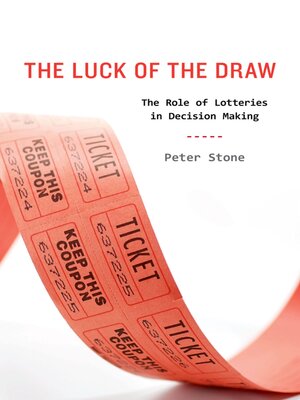
Sign up to save your library
With an OverDrive account, you can save your favorite libraries for at-a-glance information about availability. Find out more about OverDrive accounts.
Find this title in Libby, the library reading app by OverDrive.



Search for a digital library with this title
Title found at these libraries:
| Library Name | Distance |
|---|---|
| Loading... |
From the earliest times, people have used lotteries to make decisions—by drawing straws, tossing coins, picking names out of hats, and so on. We use lotteries to place citizens on juries, draft men into armies, assign students to schools, and even on very rare occasions, select lifeboat survivors to be eaten. Lotteries make a great deal of sense in all of these cases, and yet there is something absurd about them. Largely, this is because lottery-based decisions are not based upon reasons. In fact, lotteries actively prevent reason from playing a role in decision making at all. Over the years, people have devoted considerable effort to solving this paradox and thinking about the legitimacy of lotteries as a whole. However, these scholars have mainly focused on lotteries on a case-by-case basis, not as a part of a comprehensive political theory of lotteries. In The Luck of the Draw, Peter Stone surveys the variety of arguments proffered for and against lotteries and argues that they only have one true effect relevant to decision making: the "sanitizing effect" of preventing decisions from being made on the basis of reasons. While this rationale might sound strange to us, Stone contends that in many instances, it is vital that decisions be made without the use of reasons. By developing innovative principles for the use of lottery-based decision making, Stone lays a foundation for understanding when it is—and when it is not—appropriate to draw lots when making political decisions both large and small.







